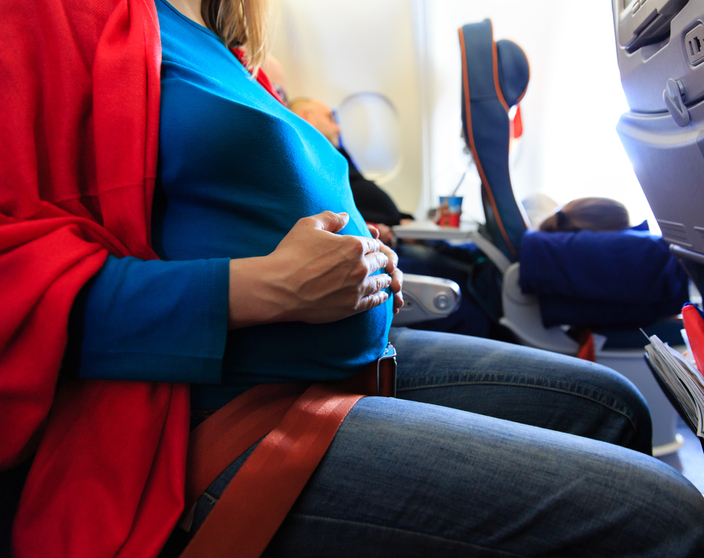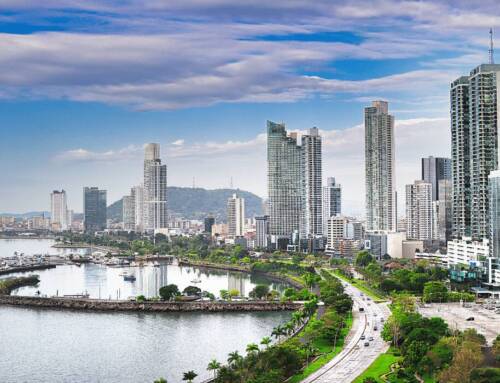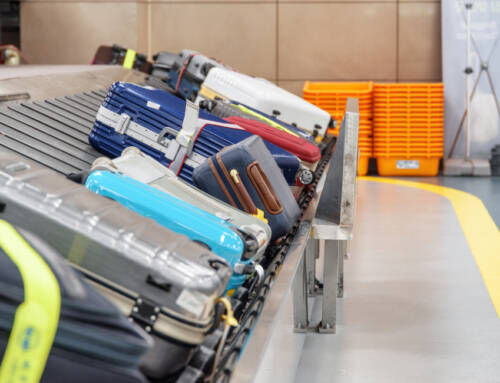At Heymondo, we have the privilege to work with travelers across the globe, including pregnant travelers. While many assume that pregnant traveling is not recommended, this is far from the truth. Instead, traveling while pregnant can help you relax as you prepare to welcome new life into your life. It is also an excellent opportunity to have a good time and visit different countries because you may not have the same option once you have a tiny human to travel with after birth. However, traveling while pregnant requires you to be attentive and listen to your body’s needs. Doing so will help you improve and enjoy your travels.
Thanks to our experience with various international travelers, we have accumulated some valuable tips for traveling while pregnant. However, advising about pregnancy and traveling is hard because women have unique experiences while pregnant. Additionally, the experiences change depending on the trimester. Therefore, it is recommended to consult your doctor before booking any travel plans.
It’s also essential to travel with insurance, as it provides peace of mind and protection in case of unexpected medical needs while abroad.
Index
Tips for traveling during each trimester
Traveling pregnant can be a frightening experience. The experiences may vary depending on the unique pregnancy experience of every woman and the trimester. However, with the right tips, you can have a good time. So, we have collected a series of valuable tips and data that could help you travel within each trimester of your pregnancy.
Traveling during the first trimester
The first trimester is usually hard on many women because their bodies are adjusting to the changes. Therefore, you may experience mood/emotion shifts, nausea, fatigue, and other scary symptoms. Here are some tips you should consider to help you while traveling during the first trimester:
- Pay attention to your body
One of the critical things you must do before traveling in your first trimester is to note your symptoms. Paying attention to your body and symptoms will help you know what food to eat and how to care for yourself while traveling. For instance, if you are sensitive to smells, you may benefit from carrying pregnancy-safe essential oils to combat unpleasant smells during your flight. A barf bag may also come in handy during your travels.
- Be flexible
Something else you should do is make room for change. Even if you have been pregnant, the first trimester experiences can be hard to predict. Therefore, you cannot plan for everything or anticipate what will happen. So, while we recommend planning before traveling, being flexible with your itinerary would be wise.
- Include plenty of free time in your itinerary
Besides flexibility, you would also benefit from having free time. You may want to explore the foreign destination as much as possible, but some free time would not hurt. The first trimester comes with morning sickness, fatigue, and mood changes. Therefore, you may need some free time to do nothing and rest. Also, doing too much during your trip can devastate your pregnancy.
- Travel to nearby destinations
Taking long flights in your first trimester is not advisable. Therefore, you may benefit from picking nearer travel destinations. This way, you do not have to worry about taking long trips and harming your baby. However, you can talk to your doctor before booking your flight.
Traveling during the second trimester
The second trimester (14 to 27 weeks) is the ideal time for traveling. Furthermore, even doctors allow their patients to take travel to distant destinations during the second trimester. This is because this window of pregnancy is mostly complication-free. Furthermore, at this point, you should have learned a lot about your body and its needs by now. However, researching in advance will help you know what to expect during your trip regarding food and ingredients. When flying for a long time, the following tips should come in handy:
- Get up every hour to prevent your feet from swelling because of sitting for an extended period.
- Wear compression socks for added comfort, swelling prevention, increased blood flow, and minimal muscle fatigue.
- Drink a lot of fluids during the trip and carry a refillable water bottle.
- Take the aisle seat so you can easily get up without disturbing other travelers. The extra room on the aisle seat allows you to stretch out more and enjoy more comfort while traveling.
- Furthermore, you can take advantage of airline accommodations for pregnant women. Most airlines offer special accommodations for pregnant women, like early boarding and seatbelt extenders. Therefore, it would be wise to call your airline’s customer care and explain your condition to see what accommodations they can offer.
- Carry a flexible pregnancy pillow for lumbar support and comfort, especially for longer flights.

Traveling during the third trimester
The third trimester (after 36 weeks) can be hard when traveling. Most doctors advise their patients against traveling after the 36th-week mark because of higher risks. Additionally, the physical state of pregnancy in the third trimester can make it hard to travel.
However, this does not mean that you must avoid traveling entirely while in the third trimester. So, instead of taking a long flight, you can go on a road trip to close destinations. Road-tripping will allow you to travel on your own terms. For instance, you can make as many stops as you want to stretch your legs and have some fresh air. Additionally, you can take as many snacks and fluids as you want.
Important note: The recommendation for pregnant traveling is that you can fly until the 36th-week mark if your pregnancy has no complications. However, some airlines may require a doctor’s note for any pregnant traveler past the 28th-week mark. The recommendations and requirements may vary depending on the airline. Additionally, some airlines force the rules while others only recommend them. Therefore, it’s important to research this data before booking your flight.
The recommended course of action under any circumstances is to visit your doctor before planning the trip so that they can evaluate your individual case. This assessment will consider whether your pregnancy is high-risk and if there are any particular factors that might endang er your health or the fetus, in addition to the trip’s duration, the planned destination, etc.
General tips to take into account
Now that you know the specific tips for traveling at different stages of your pregnancy let us look at some general tips you should consider when traveling while pregnant. It is worth noting that the considerations may differ depending on your destination, mode of transportation, and the activities you plan to do during the trip. However, the general tips below will come in handy regardless of the situation or considerations.
Buy travel insurance
Purchasing travel insurance with medical expense coverage is critical when planning a trip. The insurance should cover expenses like medical treatment, travel disruption, and planned activities. If you do not have a policy already, selecting one that covers your condition would be wise.
While travel insurance cannot help you prevent misfortunes or accidents during your travels, it offers consolidation in the form of monetary compensation. For instance, it can cover financial recovery for medical expenses you may incur due to travel accidents and illnesses. It is worth mentioning that medical treatment can be pretty expensive in some countries. Therefore, catering to the expenses out of your pocket can drain your finances significantly.
Besides the financial benefits of medical emergencies, travel insurance can protect you against trip cancellation and interruption. For instance, you never know what to expect during pregnancy, hence the need for flexibility.
In addition to protecting you from unforeseen expenses and losses, travel insurance will also provide you with contacts for emergency services. These contacts will come in handy during emergencies while in a foreign nation.

Travel with medical records
Traveling with medical records and all your health information is vital. This data may come in handy when you need medical assistance while abroad. Healthcare professionals in your travel destination will require this information to treat you properly. Additionally, you may benefit from researching and having the contacts of professional healthcare practitioners that you may need to contact in case of an issue. This is especially necessary when traveling while pregnant because you never know when you may need professional assistance.
It is also worth mentioning that the medical records should be recent. This way, the medical professionals you may visit in your travel destination know exactly where you are in your pregnancy before providing any assistance in case of medical emergencies. This information may save your life and your child’s.
Depending on your medical condition, your medical information documents should include vaccination sheets, data on allergies, and disabilities. Note that you do not need to carry a folder throughout your trip. Instead, you can have a digital copy of your medical information. This way, you can access it whenever you need it.
Have a contingency plan
A contingency plan is a course of action to help you respond effectively to a significant future incident or an event that may or not happen. Having a contingency plan is all about planning in case things change. For instance, your contingency plan for traveling while pregnant should include likely courses of action in case of incidences like sicknesses, route changes, hotel cancellations, and others. When traveling while expecting a baby, you should have a plan B for premature birth, even if there are no signs that it may happen. It is better to be prepared for an event that may not happen than to be unprepared.
Travel to a safe destination
Something else you should do when traveling during pregnancy is to choose a safe destination. Physical safety is one of the top things you must consider. The last thing you want is to place yourself and your baby in physical danger. Therefore, steering clear from travel destinations with high crime rates like abductions and theft would be wise.
Besides physical safety, it would also be wise to avoid places with medical insecurities. The trick is to avoid places where you have a higher chance of exposing yourself to illnesses like Zika, which can adversely influence your pregnancy. Furthermore, the American College of Obstetrics and Gynecology recommends that pregnant women avoid traveling to places with malaria and illnesses carried by mosquitoes.
So, you can research the destination’s safety comprehensively before planning your trip. Instead of researching the country in general, you should go into detail and research the specific city. Additionally, it would be wise to research your hotel and the destinations you wish to visit during your trip, so you know what to expect. It would help to talk to your doctor for recommendations and health considerations before traveling.
While safety is important, you should not let anxiety keep you from planning a memorable trip while pregnant. All you need is to take sensible precautions so you can make incredible memories during such a particular time in your life.

Travel insured by Heymondo
Traveling while pregnant is riskier. Therefore, there isn’t a more sensitive time when you would benefit from medical insurance. Additionally, you will need healthcare or consultations before, during, and after your trip. This is one of the reasons you need Heymondo travel insurance. With Heymondo travel insurance, you can access the company’s 24/7 doctor assistance.
Additionally, if you are planning a long-distance trip, you would benefit from travel insurance. Long-distance travel while pregnant increases health risks. Unfortunately, medical assistance in private hospitals and clinics in foreign nations can be expensive. Therefore, you need travel insurance with health coverage to cater to your medical finances. Heymondo insurance is the way to go when you need medical insurance during long-distance traveling.
Besides the regular travel insurance coverage, Heymondo insurance also offers emergency medical and dental expenses overseas. Furthermore, our App includes several advantages like free assistance calls and claims management.
Featured stories













